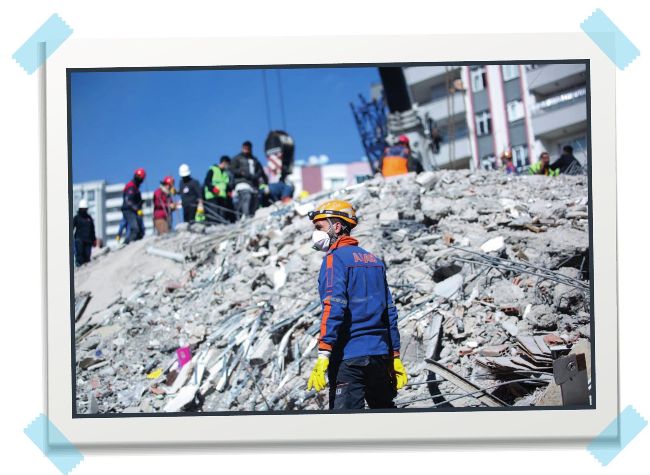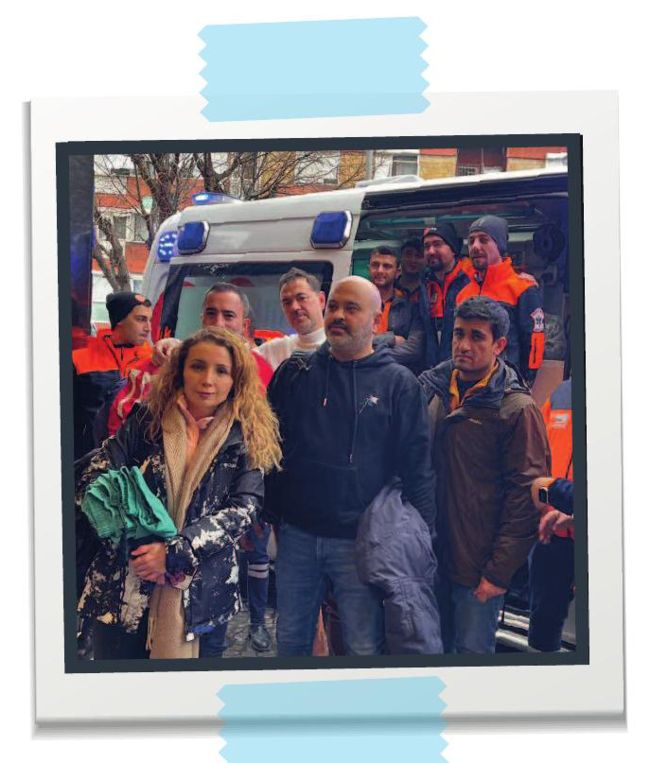HUMANITARIAN AID
DISASTER RELIEF
International Society of Aesthetic and Plastic Surgeons chair of humanitarian programs Dr Tunc Tiryaki discusses his vital work helping victims of the earthquakes in Turkey with editor Anna Dobbie
It seems crazy to think that, in January, when I first spoke to Dr Tunc Tiryaki about his humanitarian work, we were in a restaurant in Paris, enjoying a post-conference glass of wine. How times have changed. On February 6, a disastrous and deadly earthquake struck southern and central Turkey and western Syria, causing widespread damage and tens of thousands of fatalities. Mere days after launching the London Regenerative Institute with Dr Steve Cohen at Corinthia London, Dr Tiryaki is on the ground in his native Turkey as part of the first acute disaster relief task force organised by the Turkish Society of Plastic Surgeons.
“The earthquakes in southeast Turkey has been catastrophic and we are doing everything we can to organise the necessary aid in this critical time, in cooperation with Medline Turkey and Florence Nightingale Hospital Group,” he messaged via Whatsapp. “We thank them for their support. We wish safe travel and good luck to our fellow plastic surgeons who are on their way. I have huge admiration and gratitude for all involved in this rescue mission. Our hearts are with those in the area.”

As well as chairing humanitarian programs at the International Society of Aesthetic and Plastic Surgeons (ISAPS), Dr Tiryaki founded ISAPS- LEAP’s surgical relief teams, which conduct volunteer reconstructive surgery operations all around the world. He has joined volunteer surgical missions in Kazakhstan, Georgia, Syria, Jordan, and Sudan, as well as leading emergency rescue missions during the 1999 and 2011 earthquakes in Turkey. “For a long time, we were sending plastic surgeons to the ground to deal with imminent disasters, like earthquakes. We have sent quite a few missions to the Syrian war. This year, I proposed to the president of ISAPS that, instead of trying to send plastic surgeons to different areas, we create an umbrella to help those who are doing it already. Many plastic surgeons are on their own missions in Africa, Asia, and South America. What we are focusing on now is collecting data from all these missions and creating a platform, to amplify their work and to raise funds from the industry.”

As well as funding existing humanitarian missions, Dr Tiryaki plans to collaborate with media and public figures to raise awareness of the crucial work that plastic surgeons are doing worldwide.
“Plastic surgeons are perceived by the public as only conducting aesthetic surgery and earning a lot of money, which is not entirely true. Our education is in reconstruction, so we are trained in the replantation of fingers and arms, as well as dealing with acquired anomalies and congenital disorders.
“We must change this incorrect perception of what plastic surgeons really do. We do a lot of ground-breaking work, but nobody knows about it. We must make sure that the real value of plastic surgery is understood.”
To keep up with Dr Tiryaki’s humanitarian work, follow @drtuctiryaki on Instagram.